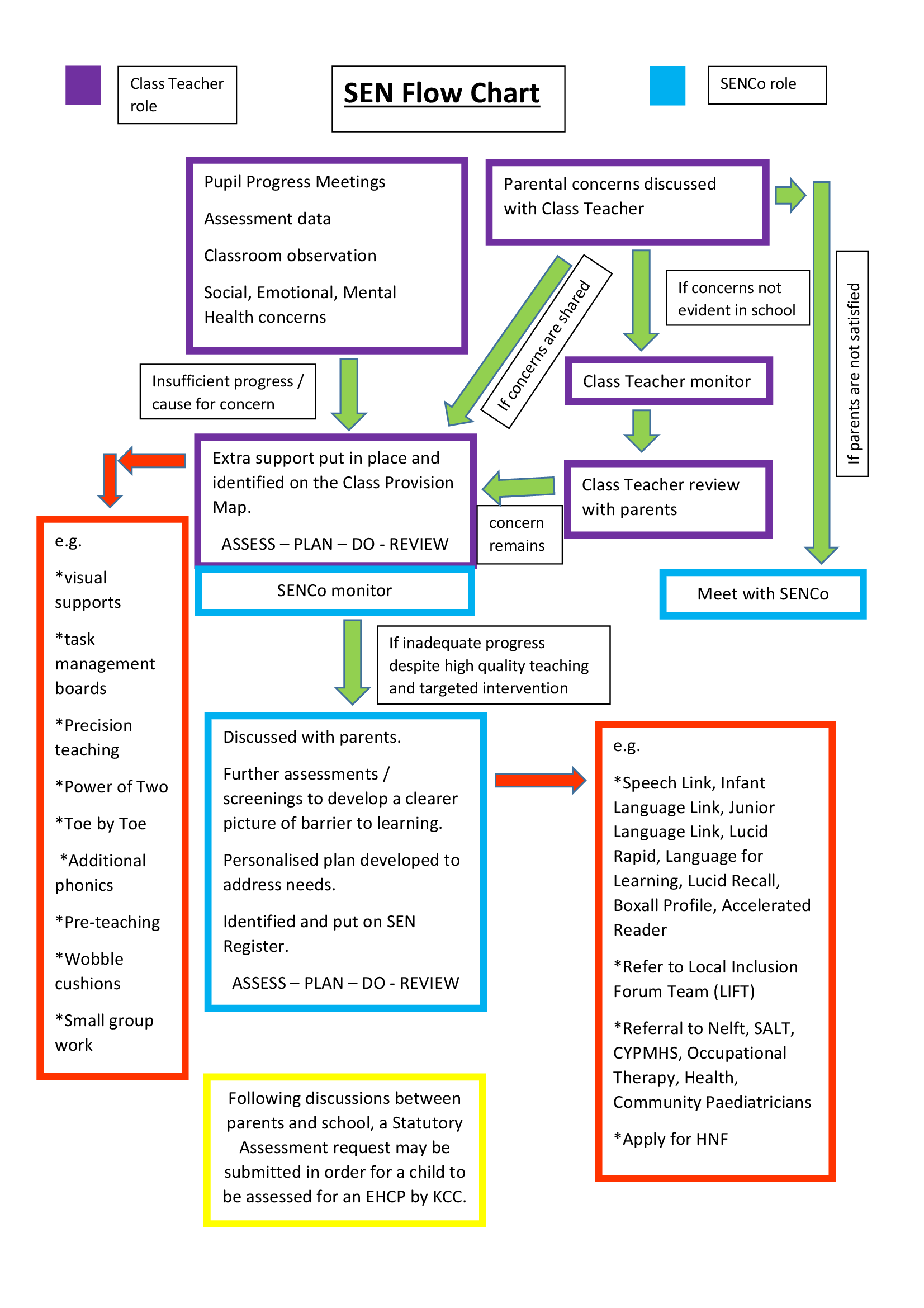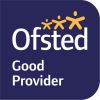Special Educational Needs
Special Eductional Needs
Inclusion & Special Educational Needs
A child or young person has SEN if they have a learning difficulty or disability which calls for special educational provision to be made for him or her. At Phoenix Community Primary School, we make provision for every kind of frequently occurring special educational need and we are able to meet the needs of the majority of our children. This can include pupils with speech, language and communication needs (SLCN), cognition and learning needs including moderate learning difficulties (MLD) and specific learning difficulties (including ASD, dyslexia and dispraxia), and those with social, emotional and mental health difficulties, those with sensory and/or physical needs and those with a physical disability (PD). On occasion, it may be necessary to request additional support/funding where the needs of the child are more complex/severe and this may be formalised through an Education and Health Care Plan (EHCP). This process is carried out in partnership with parents and carers. Before parents request an EHCP needs assessment for their child, it is strongly recommended to speak to the school about any concerns around their progress or support they are receiving. School is required to provide evidence to support the request and prior discussion and planning together with parents makes this process more effective.
Details of how we support disabled pupils access our facilities are given her: Accessibility Plan.
Identification of Pupils with SEN
All decisions relating to SEN are made in line with the SEN Code of Practice. Some children are identified with SEN before entry to Phoenix Community Primary School and others will be identified as they progress through the school.
Children may be identified by parents/carers, Class Teachers and TAs or through outside agencies eg. SALTs, CAMHS, medical services or the Early Years/Early Intervention Teams. Ongoing assessment data and analysis may also identify individual children or vulnerable groups that may require additional support or further assessment. Once identified children may be placed on the School's SEN register as School Support or they may be included on the vulnerable list.
Teaching & Provision for Pupils with SEN
High quality teaching, differentiated for individual pupils, is the first step in responding to pupils who have or may have SEN. Additional intervention and support cannot compensate for a lack of good quality teaching. Schools should regularly and carefully review the quality of teaching for all pupils, including those at risk of underachievement. This includes reviewing and, where necessary, improving, teachers’ understanding of strategies to identify and support vulnerable pupils and their knowledge of the SEN most frequently encountered SEN Code of Practice (2015, 6.37)
We follow the Mainstream Core Standards, advice developed by Kent County Council to ensure that our teaching conforms to best practice.
In meeting the Mainstream Core Standards the school employs some additional teaching approaches, as advised by internal and external assessments e.g. one to one tutoring/precision teaching, small group teaching, use of ICT software learning packages etc. These are delivered by additional staff employed through the funding provided to the school as ‘notional SEN funding’ or the school may use the flexibility of its staffing structure.
Appropriate interventions are implemented and reviewed through provision mapping for children with SEN. The provision map will also include other groups of children who may require additional focus or support. Some children may require very specific programmes of intervention to meet individual needs. Class teachers are responsible for the education of the children in their class but they may be guided by other agencies and the SEN/Inclusion Team.
When a pupil has been identified to have special educational needs, the pupil will be consulted about and involved in the arrangements made for them as part of person-centred planning. Parents are likely to play a more significant role in the childhood years with the young person taking more responsibility and acting with greater independence in later years.
Adaptations to the Curriculum and Learning Environment
We have made access for SEN and disabled pupils to the curriculum easier over the last few years:
- The use of coloured backgrounds on interactive whiteboards to support greater visual clarity
- Providing bespoke resources for individual pupils with identified needs to enable them to access the curriculum e.g. individual coloured overlays, angled desktops, writing supports, wobble seat, weighted cushions etc.
- Providing staff with training on dyslexia, ASD, emotion coaching, Downs Syndrome, Makaton, Cued Articulation, Video Interaction Guidance and ongoing training from speech and language therapist to improve communication and interaction for those with speech and language needs.
- Specific ICT based programmes are purchased on a yearly basis to develop speech and language e.g. Speech Link and Language Link.
- Providing staff training on the use of different ICT programmes including SeeSaw
- Acting on specialist advice and recommendations from a range of specialists including educational psychologists, physiotherapists, occupational therapists, specialist teachers etc. to support teaching and learning and access to wider opportunities.
- The use of visual supports – symbols and pictures to support learning, transition and social communication and interaction.
- The use of verbal social stories.
- Access to Social, Mental and Emotional Health Interventions such as Talking and Drawing and Lego Therapy
Expertise and Training of Staff
Teachers and teaching assistants have had the following awareness training: Epilepsy, Anaphylaxis, Dyslexia, Moving and Handling, Cued Articulation, Downs Syndrome, Safeguarding, Read, Write Inc. ASD, Makaton, Speech and Language, Counselling, Nurture, Boxhall Profile, Lego Therapy, Medical Needs, Sensory Processing Skills, Talking & Drawing and Dyslexia (Level 2).
In addition, key staff have accessed the following training: Speech Link and Language Link training, Language for Learning, Team Teach, ASD and dyslexia awareness training.
Where a training need is identified beyond this we will seek to up skill ourselves as appropriate. Training can be accessed in various ways, including via the Local Inclusion Forum Team from specialist teachers, EPs and local authority training sessions and health service providers. Other training providers we can approach are Wyvern School and Goldwyn School. The cost of training is covered by the notional SEN funding.
Equipment and Facilities to Support Children with SEN
Where external advisors recommend the use of equipment or facilities which the school does not have, we will purchase it using the notional SEN funding, or seek it by loan. For highly specialist communication equipment the school will seek the advice of the KCC Communication and Assistive Technology team.
Consulting Parents of Children with SEN about their Education
All parents of pupils at Phoenix Community Primary School are invited to discuss the progress of their children on three occasions a year and receive a written report once per year. In addition, we are happy to arrange meetings outside these times. As part of our normal teaching arrangements, all pupils will access some additional teaching to help them catch-up if the progress monitoring indicates that this is necessary; this will not imply that the pupil has a special educational need. All such provision will be recorded, tracked and evaluated on a Class Provision Map. This is shared with parents at parents’ evenings.
If, following this targeted provision, improvements in progress are not seen, we will contact parents to discuss the use of internal or external assessments which will help us to address these needs better. From this point onwards the pupil will be identified as having special educational needs because special educational provision is being made and the parent will be invited to planning and reviews of this provision. Parents will be actively supported to contribute to assessment, planning and review.
In addition to this, parents of pupils with an Education, Health and Care Plan (EHCP) will be invited to contribute to and attend an annual review, which, wherever possible will also include other agencies involved with the pupil. Information will be made accessible for parents.
At the end of this section there is a visual representation of how we identify SEN at Phoenix and the support we put in place. If you, as a parent, want to apply for an EHCP, the latest Kent County Council guidance (Click here) asks that you please liaise with the school before you apply.
Admissions criteria for children with SEND, especially an EHCP, can be found here: Admissions Policy
Supporting Pupils with SEN in Transition
At Phoenix Community Primary School we work closely with the educational settings used by the pupils before they transfer to us in order to seek the information that will make the transfer is a seamless as possible. Wherever possible we will;
- Visit feeder nurseries
- Engage in home visits for Reception starters
- Class teacher hand over meetings
- Staff attend multi-agency meetings prior to admission to primary
Pre-school to primary links are firmly established. The SENCO and or Early Years class teacher visit the main feeder pre-school settings as a matter of course and visit other local pre-school settings where we are informed that a pupil has identified needs, with parents permission, to plan and prepare, where needed, individual transition programmes.
We also concentrate on transitions within school for pupils with SEND. This includes class teacher handover meetings, transition mornings with the future class teacher and where possible specialist transition activities/support for in-school class transitions.
We also contribute information to a pupils’ onward destination by providing information to the next setting. Primary to secondary school links are firmly established with our main secondary schools. All pupils in year 6 attend transition days at their secondary school placement and the year 6 class teachers liaise with staff from those settings and complete a transition form for each pupil. Where a child has identified SEN needs, individual transition programmes are set up as needed.
Complaints from Parents of Pupils with SEN
The normal arrangements for the treatment of complaints at Phoenix Community Primary School are used for complaints about provision made for special educational needs. We encourage parents to discuss their concerns with class teacher. If parents seek further advice they are invited to meet with the SENCO. If they feel their child’s needs are still not being met, they should arrange to see the Deputy Headteacher or Headteacher to resolve the issue before making the complaint formal to the Chair of the governing body.
If the complaint is not resolved after the governing body has considered it, then a disagreement resolution service or mediation service can be contracted. If it remains unresolved after this, the complainant can appeal to the First–tier Tribunal (Special Educational Needs and Disability), if the case refers to disability discrimination, or to the Secretary of State for all other cases.
East Kent Hospitals Univerity NHS Foundation Trust (EKHUFT)
EKHUFT NHS Speech and Language Therapy Service are working with schools to establish the Balanced System® approach to meet the speech, language and communication needs of all children. This will provide an easy way for schools and parents to access speech, language and communication support. All schools have an allocated Link Speech and Language Therapist. Your child does not need to be on a waiting list to access the Link Speech and Language Therapist as access will be via school in partnership with parents. The school SENCo will be able to discuss a child’s progress with the Link Therapist and identify further support required. This could include the implementation of classroom approaches for all children, targeted provisions such as small group interventions for those who will benefit from more focused support, and/ or more individualised support.
For more information about the Balanced System®:https://www.thebalancedsystem.org/what-is-it/
The nominated SENCO at Phoenix Community Primary School is:
Miss R White (SENCO)
The Family Liaison Officer is TBA
Further details can be found in our SEN&D Policy and appointments to meet one with of our Inclusion Team can be made through the school office.
Please also follow this link to read about KCCs local offer:
http://www.kent.gov.uk/education-and-children/special-educational-needs/about-the-local-offer#
SEND Documents
 |
 |
|
| SEND Report 2023 | SEND Policy |
Useful Links
The British Dyslexia Association: https://www.bdadyslexia.org.uk/
- The vision of the British Dyslexia Association is a dyslexia friendly society enabling all dyslexic people to reach their potential
The Autism Charity: http://www.autism.org.uk/
- We are the leading UK charity for people with autism (including Asperger syndrome) and their families. We provide information, support and pioneering services, and campaign for a better world for people with autism.
Kent NHS Trust: https://www.kentcht.nhs.uk/childrens-therapies-the-pod/speech-and-language-therapy/
- We assess and treat children and young people with speech, language, communication and feeding difficulties. We also train and support parents, carers and staff in early years' settings and schools.
Kent Education Learning and Skills Information: https://www.kelsi.org.uk/special-education-needs
- We aim to empower parents and families of disabled children and children with SEN to be confident to take an active and informed role in their child’s education and development. We provide a comprehensive, accessible and flexible range of services that includes free confidential, impartial advice and support. For further information view our leaflet on Parent Support.



